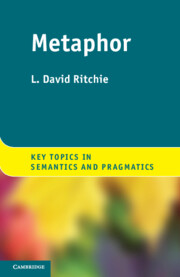Book contents
- Frontmatter
- Contents
- Figures
- Acknowledgments
- 1 Introduction
- 2 Understanding metaphors
- 3 Categorization and relevance
- 4 Conceptual metaphors
- 5 Perceptual simulation
- 6 Metaphors and framing effects
- 7 Language play
- 8 Metaphors in conversation
- 9 Metaphors in politics
- 10 Metaphors in literature
- 11 Closing reflections
- Glossary
- Bibliography
- Index
11 - Closing reflections
Published online by Cambridge University Press: 05 February 2013
- Frontmatter
- Contents
- Figures
- Acknowledgments
- 1 Introduction
- 2 Understanding metaphors
- 3 Categorization and relevance
- 4 Conceptual metaphors
- 5 Perceptual simulation
- 6 Metaphors and framing effects
- 7 Language play
- 8 Metaphors in conversation
- 9 Metaphors in politics
- 10 Metaphors in literature
- 11 Closing reflections
- Glossary
- Bibliography
- Index
Summary
‘The question is,’ said Alice, ‘whether you can make words mean so many different things.’
‘The question is,’ said Humpty Dumpty, ‘which is to be master – that’s all.’
Alice was too much puzzled to say anything; so after a minute Humpty Dumpty began again. ‘They’ve a temper, some of them – particularly verbs: they’re the proudest – adjectives you can do anything with, but not verbs – however, I can manage the whole lot of them! Impenetrability! That’s what I say!’
‘Would you tell me please,’ said Alice, ‘what that means?’
‘Now you talk like a reasonable child,’ said Humpty Dumpty, looking very much pleased. ‘I meant by “impenetrability” that we’ve had enough of that subject, and it would be just as well if you’d mention what you mean to do next, as I suppose you don’t mean to stop here all the rest of your life.’
‘That’s a great deal to make one word mean,’ Alice said in a thoughtful tone.
‘When I make a word do a lot of work like that,’ said Humpty Dumpty, ‘I always pay it extra.’
(Lewis Carroll, Through the Looking Glass)Words can be made to do a lot of work, and carry a lot of meanings. Some of the tools for putting them to work include using metaphors, storytelling, and wordplay. As Humpty Dumpty suggests, we can get a lot more work out of a metaphor vehicle if we pay extra. In particular, we need to pay extra attention to contexts, and pay extra in processing effort.
SOME OF THE WORK METAPHORS DO
One way to think of metaphor analysis is in terms of understanding how speakers and writers put words to work when they use them as metaphor vehicles. Metaphors are often used to express ideas and feelings in more interesting or more compelling ways. Even if it adds no new meaning, “we’d be swimming in money” is more interesting than “we’d have lots of money” and “incendiary language” is both more interesting and more compelling than “controversial language.” Metaphors also provide a means for expanding available vocabulary to express new concepts or new ways of understanding familiar concepts, as when “world-wide web” was coined to describe a new medium of communication.
- Type
- Chapter
- Information
- Metaphor , pp. 201 - 208Publisher: Cambridge University PressPrint publication year: 2013

